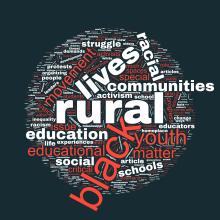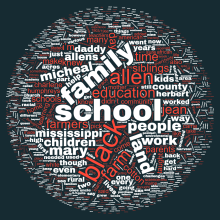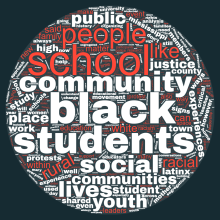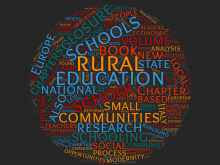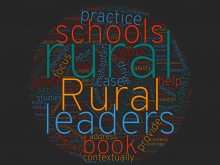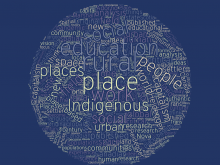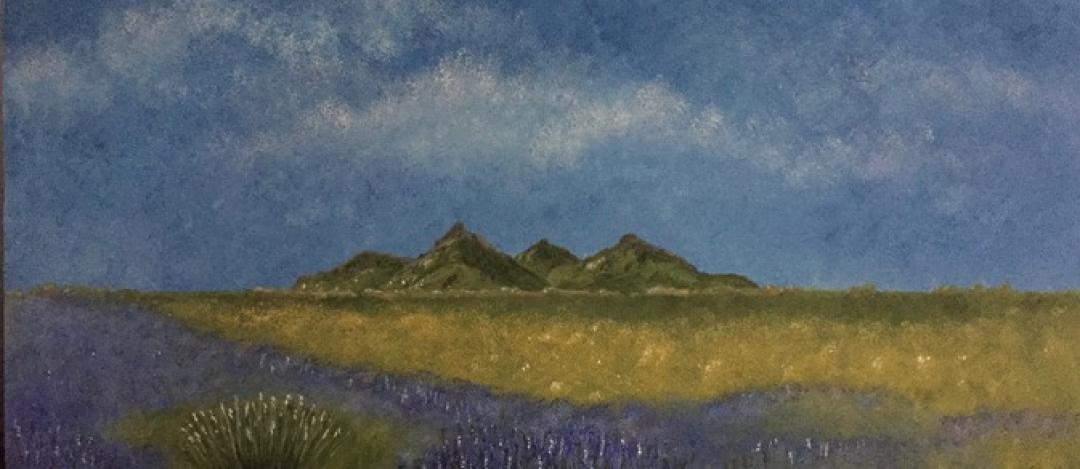
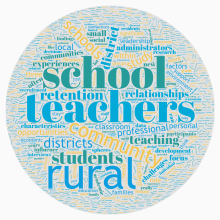
book
Teacher retention studies often focus on why teachers leave the profession, but this article suggests that focusing on why teachers stay situates rural school and community assets as the foundation to reform. The research design is a collective case study of three rural Wisconsin school districts, and findings are based on interviews and focus groups with 44 teachers and six administrators. Our study’s findings reveal the centrality of relationships to teachers’ decisions to stay in their rural schools. We present four relationship categories: (a) commitment to students, (b) opportunities for leadership and collaboration, (c) connections to community, and (d) personal and professional ties. Our study suggests the need for a conceptual reframing, or a new way of thinking, in research on teacher retention. Practical implications for addressing rural teacher retention are also surfaced, suggesting a new way of “doing” that situates school-community relationships at the center.
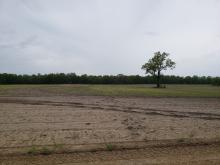
This special issue of JRRE explores Black Lives Matter and rural education. It was edited by guest editors Ezekiel Joubert III and Timothy J. Lensmire.
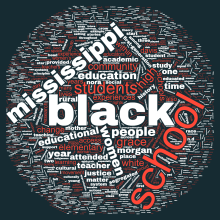
book
This article depicts a qualitative narrative study that reflects on the educational paths followed by three generations of Black women from rural Mississippi. The purpose of this study was to expand the documented footprint of Black women’s educational experiences in the rural Deep South by exploring my own educational experiences as a researcher and as a participant as well as the experiences of women in my immediate family. Reflections, connections, and analyses address 20 years of lived experience in Mississippi school systems. The intersectionality of critical race theory (CRT) rooted in Black feminist theory provided the theoretical framework. The research questions addressed were: What are the similarities and differences among three generations of Black women educated in Mississippi? How can this information assist us to better understand the historical and present intersectional struggles of Black education in rural areas? The intersections of gender and race were explored. Mapping as inductive analysis using writing as inquiry allowed me to garner a deeper meaning of the stories. The approach to story analysis was iterative as I moved in and out of several steps. My insights and reflections depicted a supportive village that helped to guide the women through their studies. The overall finding was that these women’s sustained success in rural Mississippi educational settings was linked to having a nurturing and supportive network of educators throughout their academic careers. We need to investigate other Black women’s educational experiences in rural education settings to increase representation and to demonstrate the congruences and particularities of learning what matters to Black women in rural communities.
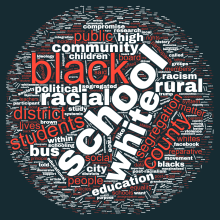
book
The purpose of this article is to critically probe racial discourse around how the convergence of Black Lives Matter (BLM) and white nationalist organizations complicate the reality of segregation, education, and social change in a rural community in Central Georgia. Critical race studies ground the work, using narratives as a device to frame and examine what school transformation can look like for Black people living in rural communities. The method for this study is a critical ethnography that draws on census data, school district achievement data, and informal conversations and interviews conducted in person and though social media. The findings from this research suggests that some African Americans in this rural community are beginning to embrace forms of segregation as a reparative compromise to dealing with racism in their community. The implications of this study contribute to the literature on race and education in rural schooling and community.
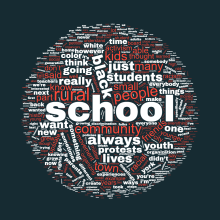
book
In the wake of the murders of George Floyd, Breonna Taylor, Ahmaud Arbery, Toni Cade, and many unnamed others, the movement for Black lives ignited a mass of youth voice and participation. The struggle to transform education for Black students is now at the forefront of the Black Lives Matter movement and includes demands for ethnic studies curriculum, the hiring of Black educators and counselors, accountability for racialized bullying and school violence, the abolishment of zero tolerance policies, and the removal of school police. This conversation with youth rural activist Gem Amber Sun Helper explores her organizing for Black lives in education in a rural upstate New York community.
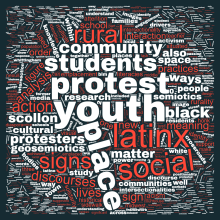
book
In June 2020, in a rural Rust Belt town in the Midwest, over 100 residents stood on the grounds of the county courthouse and publicly protested for Black Lives Matter. Once students began to arrive, the protest shifted. Latinx youth led chants, held signs, and stood in the front of the other protesters, moving the protest forward, away from the courthouse and toward the busy street of passing cars. I knew these de facto protest leaders well—they were my former students. This town is considered part of the New Latino Diaspora (NLD), a U.S. region not traditionally associated with Latinx settlement population. Here Latinx families represent almost 30% of the population and have been marginalized in community spaces and schools. Rural students are stereotyped, and Latinx students are marginalized as well, bearing layers of cultural and social inequity. This study disrupts the assumption of rural middle America as simple, homogenous, and conservative and, using geosemiotics, seeks to explore the intersectional ways in which Latinx youth position and identify themselves as activists, expanding current conceptualizations of rurality and literacy while examining how Black lives matter to Latinx youth.
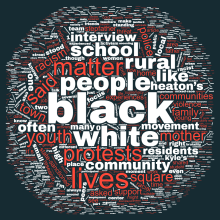
book
Less than 24 hours after police murdered George Floyd, Black Lives Matter protesters organized in several cities to demand that their elected officials defund their police and redirect this funding to better healthcare, schools, public transportation, affordable housing, and food security. Eventually, these protesters came together in rural communities and towns to push for similar demands. Journalists documented these protests, highlighting both the similarities and differences in these places and protests. This article directly addresses the oversights and stereotypes that many of these articles promoted through a careful analysis of the experiences of two rural youth—a Black, Puerto Rican young woman and a Black, Dominican young man—as the Black Lives Matter protests unfolded in their predominantly white small town. In doing so, this study illustrates the threat of visibility that rural youth experience and how this threat shaped their decision to participate or not participate in the protests.
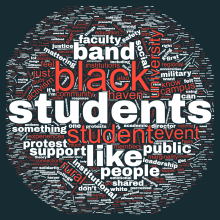
book
The emotional labor of organizing, leading, or participating in campus protests may affect Black students’ involvement in social justice activism at rural, predominantly White, higher education institutions. In this study, we examined the experiences and reflections of three Black students who engaged in a Black Lives Matter-inspired protest at a rural, public, historically White regional university in the South. We used a narrative design approach and critical race counter-storytelling methods to present an account of a peaceful protest organized by the students. The counter-stories we present demonstrate both the courage and costs of activism engagement for Black students at a historically White, rural university. We conclude with providing ways in which university personnel and stakeholders in rural communities can stand in solidarity with students to heighten their voices and desires to render societal change.
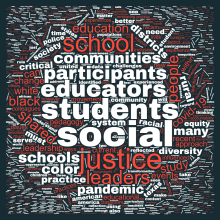
book
The purpose of this study was to explore how social unrest in the United States, specifically the COVID-19 pandemic and the tragic deaths of Black people at the hands of police, have transformed the leadership and pedagogy of school leaders in three rural school districts in southwest Texas. The strategies used to collect data for this study included semi-structured Zoom interviews, reflective journals, and class reflections. Findings from this study highlight how COVID-19 and racial unrest in the United States have centered the commitment of the participants to embrace a pedagogy that is more responsive to the students they serve. Additionally, current events have sensitized educators to be more empathetic toward the community they serve as educators. Implications of this study include that educators and leaders should become social justice advocates and strive to become allies against systemic oppression.
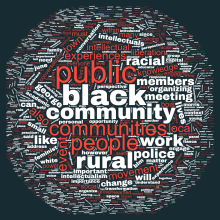
book
8 minutes and 46 seconds. This was the amount of time it took me to watch George Floyd, an unarmed Black man be murdered at the hands of the police. While George Floyd’s death was not the first Black murder to happen while in police custody or in 2020, his death served as a catalyst that reignited something in me, millions of around the globe, and the Black Lives Matter (BLM) movement. While the nation focused on the impact of BLM movement in urban communities, the impact in rural communities was left from the conversation. Rural communities have a complex history of systemic racial, social, educational, and economic inequality, and because of these histories they are uniquely situated to respond to racial inequality in meaningful and authentic ways. Even so, as a Black woman, trained sociologist, and educator situated in a rural, conservative, predominately White community in Texas, organizing and engaging the public in racial justice work has challenges. However, through coordinated and specific efforts it is possible to mobilize the community for change. This essay reflects on those efforts. Drawing on public pedagogy frameworks that explore public educational sites, W. E. B. Du Bois’s public sociology, scholar-activist “liberation capital” theory, I try to make sense of applying these perspectives as a tool for engaging my rural town in the BLM movement. Through my observations, reflections, and analysis, I hope to provide practical methods and tools for scholars, researchers, and rural community members that center on how to engage each other and ultimately create capacity for impactful organizing on racial equity in rural communities.
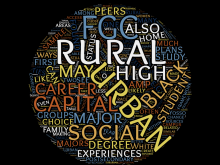
book
By definition, first-generation college (FGC) students share similar levels of parental education, and they often receive support on college campuses as though they represent a homogenous group. However, FGC students come from a wide variety of backgrounds that may necessitate different forms of support. This article takes a step toward exploring this variation by examining how rural and urban FGC freshmen differentially use their social networks to help them choose college majors and career pathways. The case study uses longitudinal interviews with 18 rural FGCs and 15 urban FGCs to tease apart the ways in which rural and urban places create distinct challenges and opportunities that affect the transition to college. The analysis also examines the ways in which race interacts with place to further shape these processes. Most notably, urban students benefited from career exploration opportunities available in their cities and high schools and were preconditioned to see their home communities as sources of social capital, while rural students relied heavily upon fewer hometown mentors but also understood the urgency of forming new ties in college and ultimately bridged more successfully into the collegiate sphere. In addition, with potential implications for student affairs professionals, administrators, faculty, and others seeking to support and mentor FGC students, rural students in particular rejected the FGC label and associated more strongly with their geographic background. Finally, while Black and White students from rural and urban areas often pursued similar college majors, their experiences along these trajectories often diverged in meaningful ways.

book
U.S. education research about rural places commonly neglects definitional boundaries. Our systematic mapping review 524 studies approximated how early-career scholars and those new to the rural education research space, including practitioners and policymakers, might experience the literature base and provides a bird’s-eye view of how studies tend to define rurality and the types of locations, sectors, and participant roles that they interrogate within inquiries of rural education. We found definitions or demonstrations of rurality in 30% of our sample and little common ground among such studies. For example, 8.59% of studies in our sample applied the National Center for Education Statistics’ urban-centric locale codes, still making that the most frequently employed schema. Defining rural occurred about twice as often within articles in rural-focused journals than within non-rural-focused journals, while articles in Journal of Research in Rural Education defined rural nearly three times as often as articles in non-rural-focused journals. Regionally, we found considerable evidence that site selection has tended to privilege the South and Midwest, seeming to desert the Northeast, Upper Midwest, and swaths of the West. Regarding sectors, we found rural research on K-12 education (81%) to be far more prevalent than on pre-K (1.15%) or tertiary education (12%). We conclude with provocations for U.S. education researchers toward a goal of richer scholarship.
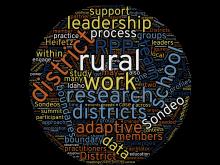
book
Research-practice partnerships (RPPs), where researchers and practitioners work in concert to address persistent problems of practice, provide promising mutualistic benefits in urban school settings. Drawing on an integrated framework, this case study explores the initial development of an RPP between six small and rural school districts and two universities, highlighting the complexities of leadership and rurality associated with this type of school improvement work. By using a rapid reconnaissance focus group approach, known as the Sondeos, the political landscape in each district emerged, with nuanced (and in many cases shifting) boundaries. This place-conscious adaptive method may be a promising tool to support rural education researchers and rural school leaders as they work together to actualize viable research-informed improvement. However, our findings illustrate that adaptive leadership capacity building may be a necessary element to sustain such work.

